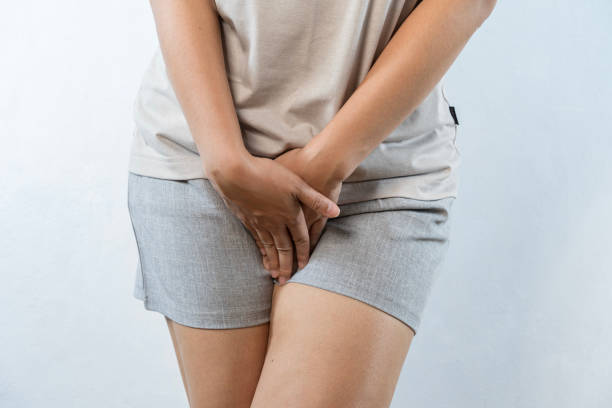5. Liver or Kidney Problems: When Urine Odor Becomes Serious
1. Understanding Why Urine Has a Smell
Urine naturally contains waste products like urea, creatinine, phosphates, and certain acids, all of which can produce a mild odor. A strong urine odor, however, often signals changes in your body that may need attention. The most common cause is dehydration. When you don’t drink enough water, your urine becomes more concentrated, leading to a strong ammonia-like smell. This is why urine typically has a slightly stronger odor first thing in the morning. However, if you notice persistent strong odor despite staying hydrated, it may indicate underlying health issues. Certain foods like asparagus, garlic, and coffee, as well as some medications, can temporarily alter urine smell. But if dietary causes are ruled out, bacterial infections, liver disorders, or metabolic conditions could be the reason. Maintaining proper hydration and monitoring any accompanying symptoms—such as burning sensation, frequent urination, or abdominal pain—can help you identify when it’s time to see a doctor. A sudden change in urine odor should not be ignored, as it can be an early sign of urinary tract infections (UTIs) or other medical conditions.
2. Dehydration and Its Role in Strong Urine Odor
One of the most frequent causes of foul-smelling urine is dehydration. When your body lacks adequate fluids, your kidneys concentrate urine to conserve water, resulting in a darker color and stronger odor. This happens because urea and ammonia levels become more concentrated, amplifying the smell. People who consume less than the recommended daily water intake (around 2–3 liters for adults) are more prone to this issue. Dehydration can occur not only due to insufficient water intake but also because of excessive sweating, diarrhea, vomiting, or fever. Morning urine often smells stronger because your body conserves water overnight, but the smell should fade after rehydration. If it doesn’t, this might indicate a deeper issue such as infection or kidney problems. Signs of dehydration include dry mouth, dizziness, dark-colored urine, and fatigue. The easiest way to prevent odor from dehydration is to drink water regularly throughout the day, eat water-rich fruits and vegetables, and limit diuretics like caffeine and alcohol. For active individuals or those living in hot climates, water requirements can be higher. Proper hydration is not only crucial for fresh-smelling urine but also for maintaining overall kidney and urinary tract health.

3. Urinary Tract Infections (UTIs) and Strong Odor
UTIs are one of the most common causes of foul-smelling urine, especially in women, though men can also be affected. This condition occurs when bacteria, typically E. coli, infect the urinary tract. In addition to a strong, unpleasant smell, UTIs often cause symptoms like burning during urination, frequent urges to urinate, cloudy urine, and lower abdominal pain. In severe cases, blood may also be present in urine. The bad odor in a UTI is caused by bacterial growth and the body’s immune response. If left untreated, the infection can spread to the kidneys, leading to more serious complications. Women are more prone to UTIs due to their shorter urethra, making it easier for bacteria to travel upward. Poor hygiene, holding urine for too long, and sexual activity without proper cleanliness can increase the risk. Drinking plenty of fluids, urinating after intercourse, and maintaining good genital hygiene can help prevent UTIs. If symptoms persist for more than a day, a urine test and antibiotics may be necessary. Early treatment not only eliminates odor but also protects against long-term urinary system damage
4. Foods and Medications That Affect Urine Smell
Certain foods and medications can temporarily alter the smell of urine without indicating a health problem. For example, asparagus is notorious for causing a strong sulfur-like odor due to its asparagusic acid content. Garlic, onions, brussels sprouts, and some fish can also cause noticeable changes in urine smell. Coffee and alcohol act as diuretics, concentrating urine and making odors more intense. Vitamin supplements—especially those high in B-complex vitamins—can produce a stronger smell as excess nutrients are excreted through urine. Antibiotics like amoxicillin and medications for diabetes may also have this effect. While these changes are generally harmless and short-lived, they can sometimes be mistaken for infection symptoms. If you notice a change in smell after introducing a new food or supplement, monitor whether it fades within 24–48 hours. Staying hydrated can dilute odor-causing compounds and speed up their elimination. However, if the smell persists without dietary explanation, it’s best to consult a healthcare provider to rule out infections, liver issues, or metabolic conditions. Awareness of how diet and medication influence urine odor can help you better understand your body’s signals.
5. When to See a Doctor for Strong Urine Odor
While occasional strong-smelling urine is normal, there are cases where it could indicate serious health concerns. You should seek medical advice if odor is accompanied by painful urination, blood in urine, persistent cloudiness, fever, or pelvic/back pain. These symptoms could indicate UTIs, kidney infections, bladder stones, or even liver disorders. Conditions like diabetes can also cause a sweet or fruity urine smell due to high ketone levels. In rare cases, strong odor may be linked to metabolic disorders like trimethylaminuria (“fish odor syndrome”). If hydration and dietary adjustments do not resolve the smell within a few days, a urine analysis can help identify the cause. Doctors may recommend antibiotics, hydration therapy, or further tests depending on the diagnosis. Pregnant women should be particularly cautious, as untreated UTIs can lead to complications for both mother and baby. Remember: persistent foul-smelling urine is not a condition to ignore—it’s often your body’s way of signaling that something needs attention. Early diagnosis and treatment can prevent complications and maintain overall urinary tract health.
Disclaimer
The tips and suggestions mentioned in this article are intended for general informational purposes only. Before starting any fitness program, making changes to your diet, or trying any remedies related to health conditions, please consult your doctor or a qualified healthcare professional. Dr. You does not verify or endorse the authenticity of any such claims made herein

